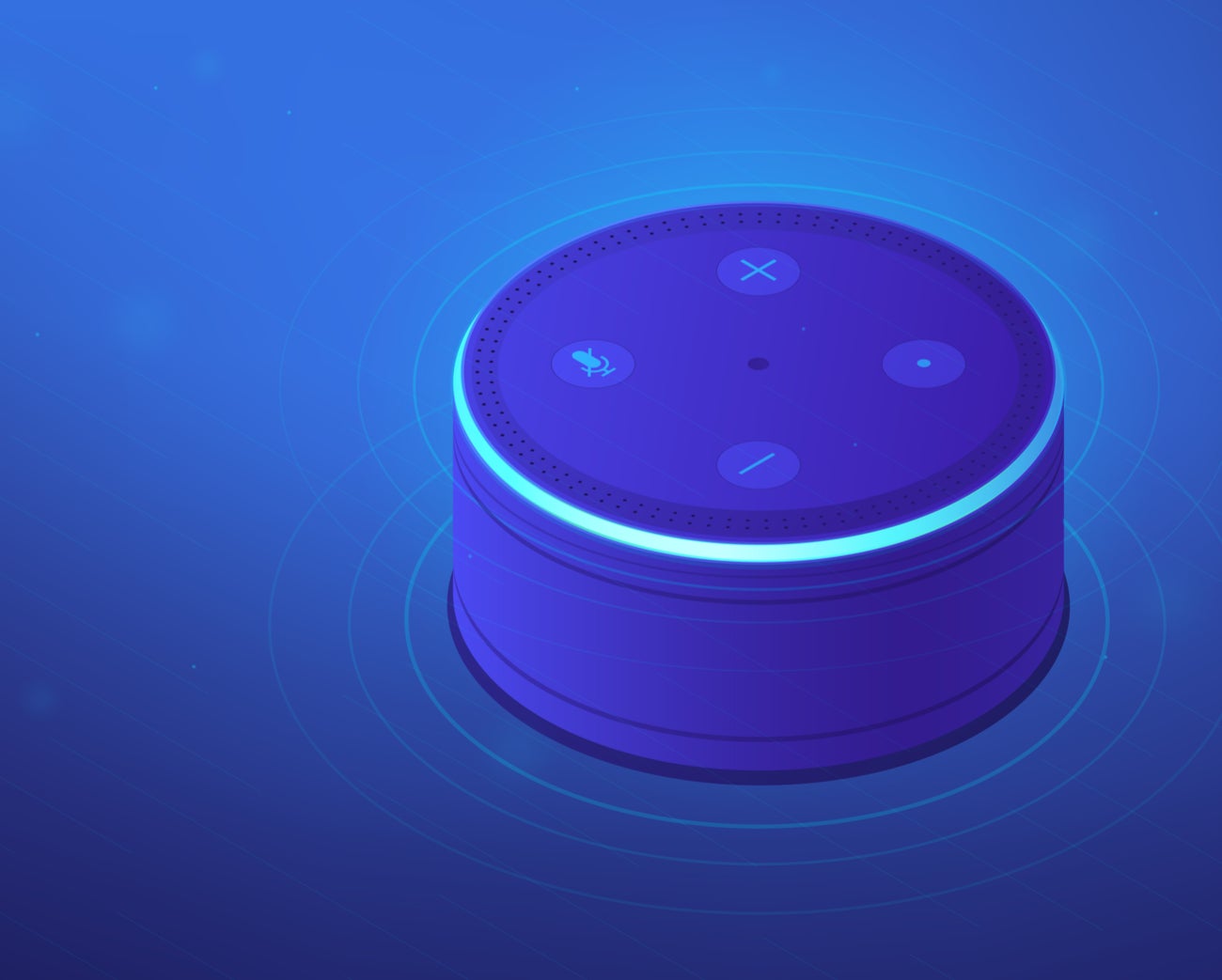
The keyboard will become obsolete as voice technology takes over, with consumers increasingly turning to Alexa, Siri and Cortana to interact with their devices and appliances.
According to a recent study by voice authentication company Pindrop, 48% of consumers believe that keyboard use will become rare by 2023, with 56% stating that they expect voice technology to improve their lives.
By 2023, 63% of consumers expect to be using voice technology to help them when cooking meals. Some 58% also expect it to help them manage their home, with 52% expecting it to help with ordering groceries and booking holidays.
Voice technology is also expected to impact business. Over two-thirds of companies are planning to make use of the technology to improve the customer experience, while employees also expect it to overhaul the workplace, from the way they gain entry to their office to how they interact with equipment.
The efforts of tech giants like Amazon, Apple and Google have already normalised voice technology, with 63% of consumers already using voice to control a device.
However, tech giants are spending big in order to improve the technology and reach more customers. Amazon, for example, has set up the Alexa Fund. This venture capital initiative provides up to $200m in funding for innovative voice tech companies that “can improve customers’ lives”. Consumers recognise the pace at which voice technology is improving, with 53% expecting to increase their interaction with virtual assistants in the next 12 months.
How well do you really know your competitors?
Access the most comprehensive Company Profiles on the market, powered by GlobalData. Save hours of research. Gain competitive edge.

Thank you!
Your download email will arrive shortly
Not ready to buy yet? Download a free sample
We are confident about the unique quality of our Company Profiles. However, we want you to make the most beneficial decision for your business, so we offer a free sample that you can download by submitting the below form
By GlobalDataVijay Balasubramaniyan, CEO of Pindrop, said: “The last few years have seen early adopters rush to bring smart devices and speakers into their homes, normalising a technology that was once seen with skepticism.
“Today’s results prove this and also point towards a future where the way we engage with technology fundamentally shifts to a hands-free model. People can see the benefits it brings them, allowing them to simplify their lives and help battle the constant distractions handheld devices provide.”
Voice technology: A cybersecurity risk
Since Amazon Alexa and Google Home first started entering our homes, we’ve been treated to an endless stream of stories on how these devices are listening to our conversations and spying on us for corporations, but does voice technology pose a genuine threat to security?
According to Pindrop, security and privacy is the number one concern for consumers that are unwilling to make use of the technology. Despite the vulnerability of current text passwords, which remains the biggest security threat, the majority of consumers are still against using voice authentication to protect their user accounts and devices.
Researchers have previously demonstrated how high-frequency sounds can be used to hijack virtual assistant devices. These sounds, undetectable by humans, can be used to issue basic commands such as to make a phone call or launch a webpage, which opens up a range of opportunities to cybercriminals to exploit.
Last year Chinese hackers were able to take advantage of bugs in Amazon’s Echo devices to stream audio from the speaker to a remote device. While few cases of attacks like this have actually been launched against the public, the potential is there.
If voice technology is to deliver on its potential, Balasubramaniyan believes that it is on system manufacturers to adequately protect consumers from such threats.
“People are still sceptical about how secure such devices are. The media have published many stories of mishaps with smart speakers and our own research from June 2018 has found that 80% of businesses are worried about how to secure voice data.
“In order to ease these fears, and encourage wider usage of voice, those rolling out voice services need to ensure that the systems put in place to check user identities are up to scratch and can accurately spot both fraudulent and genuine activity.”
Read more: “Sentient, intelligent and conversational” voice technology to become widespread by 2025






